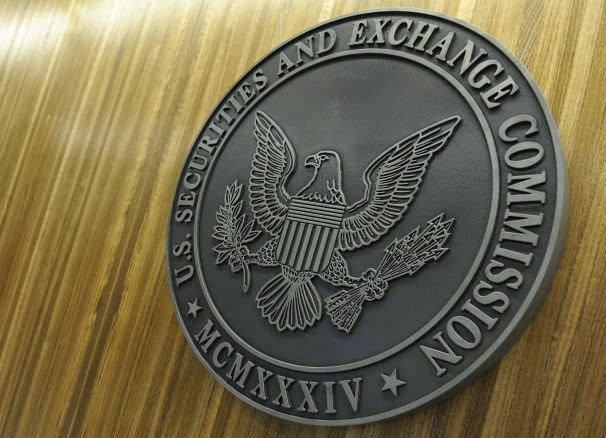A new report raises ethical questions about
stock trades by employee at the Securities and Exchange Commission.
(Reuters/Jonathan Ernst)
Forget hiring a top hedge fund to
manage your portfolio. Your better bet might be an employee at the
Securities and Exchange Commission, according to a new report suggesting
that regulators are trading on inside information relating to
investigations and upcoming enforcement actions.
In the report titled "The Stock Picking Skills of SEC Employees,"
researchers found that SEC employees' stock purchases look like your
average person's. But when these employees sell their stocks, they
appear to systematically beat the market by making sales within weeks of
costly enforcement actions by the agency.
"These results suggest
that SEC employees potentially trade profitably under the new rules,
and that at least some of their profits potentially stem from trading
ahead of costly SEC sanctions and on privileged non-public information,"
write Shivaram Rajgopal, a professor of accounting at Emory University,
and Roger M. White, a doctoral student in accounting at Georgia State
University. "In short, it appears that SEC employees continue to
take advantage of non-public information to trade profitably in stocks
under their regulatory purview."
A spokesperson for the SEC, which has made crackdowns on insider trading a priority in its enforcement division, declined to immediately comment.
The
information was obtained from the SEC under a Freedom of Information
Act request, but it was limited. The researchers did not have access to
the portfolios of the SEC employees. And none of the trades were
identified by employee, so the researchers could not tell how much in
profits certain employees were earning, or whether employees with
certain kinds of jobs or levels of power were able to make more money.
Instead,
they built hedge fund portfolios where they went long on stocks that
SEC employees buy and short on stocks they sell. The findings are
startling.
Researchers found that out of the 56 enforcement
actions against publicly traded companies during the time period
analyzed, SEC employees traded ahead of six -- and were far more likely
to sell rather than buy. "This fact pattern indicates that the monitoring mechanisms the SEC planned to impose to discourage such practice are either weak or nonexistent," the researchers say.
The
six enforcement actions were against Bank of America (Feb. 4, 2010),
General Electric (July 27, 2010 and Dec. 23, 2011), Citigroup (July 29,
2010), Johnson & Johnson (April 8, 2011) and JPMorgan (July 7,
2011).
In these cases where trades were made ahead of an announcement, the vast
majority were sales. Take a look at the table below comparing the
actions of SEC employees compared to the entire market, in various
run-up periods ahead of an enforcement action. The disparity is
striking. Thirty days or less before an announcement, for instance, more
than 74 percent of trades by employees were sales, versus just half in
the total market.
The SEC apparently did not begin
tracking data on its employees' transactions until 2009. Even now, the
report says that there is no way of knowing whether the agency is
auditing the reported trades to verify their accuracy.
New
rules from 2009 state that any employee must first obtain clearance for
any securities transaction. The idea is that if the employee gets
cleared for the stock trade, then the clearance will serve as evidence
that the employee didn't do anything improper.
But the report's writers say that the profits made by employees still raise questions.
"Given that the SEC is charged by Congress with enforcing insider trading regulations against corporate officers and other market participants, our findings indicating abnormal risk adjusted profits on trades by SEC employees are arguably troubling," write Rajgopal and White.
Update: The
SEC says it has an explanation. "Each of the transactions was
individually reviewed and approved in advance by the Ethics office,"
said John Nester, spokesperson for the SEC. "Most of the sales were
required by SEC policy. Staff had no choice. They were required to
sell."
Nester explained that before staff can work on an issue
that involves a company, they have to sell any holdings of stock in that
firm. As a result, he said, there shouldn't be any surprise that a sale
would precede the announcement of an enforcement action.
StockCharts.com
Tags Cloud
Apes
(1)
Banks
(1)
Defamation
(1)
Fraud
(2)
Frauds
(8)
Gains
(2)
Guides
(1)
Insider
(1)
Learn
(8)
Manipulation
(5)
Markets
(2)
Performance
(2)
Rules
(7)
SEC
(1)
Social Network
(1)
Stonks
(1)
Story
(6)
Traders
(1)
Warning
(9)
Copyright © 2011 ShockerTrades.com - Trading Education and Informist | Powered by Blogger




